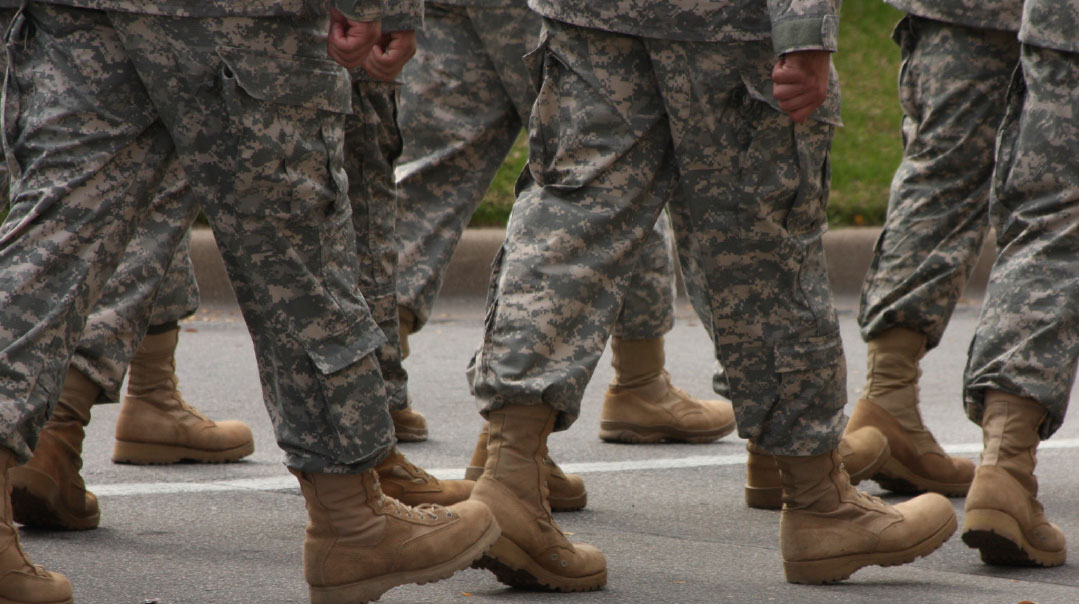Twitter Policy Reversals and Who We Really Rely On

The American withdrawal has two implications for Israel: one general and long-term; the other immediate

President Trump contrived to ensure a powerful Yom Kippur davening for me. His out-of-the-blue announcement via social media that he was removing all remaining US troops from northeastern Syria, and greenlighting a Turkish invasion into the Kurdish-controlled area of Syria following a telephone call with Turkish strongman Recep Tayyip Erdoğan just before Yom Kippur, brought home clearly the eternal truth: ein lanu al mi l’smoach eleh al Avinu shebaShamayim.
As someone living in Israel observing the antics of the political leaders of our premier ally, I feel like the mythical Ulysses trying to navigate between Scylla and Charybdis. On the one hand, the Democratic Party is moving dramatically and inexorably to the Left, and is increasingly hostile to Israel. A Democratic president would almost surely reinstitute the Obama administration’s pro-Iranian Middle East policy and reinstitute the nuclear deal with Iran. (Not to mention that the policies advocated by the leading Democratic candidates would be economically ruinous for America and threaten the religious liberties of American citizens in the face of the LGBT onslaught.)
On the other hand, we have an unpredictable president prone to announcing potentially catastrophic policy reversals by Twitter, without adequate consultation with his own military and diplomatic experts. Both the Pentagon and State Department had no prior notice and were left scrambling by the president’s tweet of the immediate withdrawal of American forces from Syria.
The president has proven capable of abandoning allies as fast as Achashveirosh removed his royal signet. The Kurdish-dominated Syrian Democratic Forces whom Trump abandoned to the tender mercies of the Turks played a vital role in defeating ISIS, losing 11,000 fighters in the process. And in August, the SDF withdrew from defensive positions along the Turkish border, at the request of the Americans and with American assurances.
In the face of fierce criticism from faithful supporters in his own party, such as Senator Lindsay Graham and former UN Ambassador Nikki Haley, Trump tweeted that if the Turks did anything that he considers off-limits, he would destroy the fragile Turkish economy and currency.
In any event, it is doubtful that the Kurds took much solace in Trump’s assurances, especially as Trump provided no guidelines to what the invading Turks cannot do. Further, Trump’s invitation of Erdoğan to an end-of-the-month White House meeting suggested that he is unlikely to adopt a bellicose policy towards Turkey.
Trump’s precipitous announcement of the withdrawal recalled his December 2018 Twitter announcement of the withdrawal of all American troops from Syria. That led to the immediate resignations of Secretary of Defense James Mattis and US special envoy to the international coalition fighting ISIS, Brett McGurk.
It also left the person in charge of the American troops, General Joseph Votel, commander of US Central Command, in a dangerous and untenable position. American troops were then a long way from their original bases in Syria. To withdraw would have required the US troops to retreat through an area with 10,000 fanatic ISIS fighters and to rely on the support of the very SDF fighters whom they had just abandoned.
General Votel was left to publicly contradict the president’s assertion that ISIS had been defeated and to tell CNN that the time was not yet ripe for withdrawal. Only then did Trump rescind his order.
It was the same story last June, after Iran shot down an American drone close to Iranian air space. Trump ordered an American strike on Iran, and soon thereafter went on social media to announce that he had called off the strike after learning that 150 Iranians would be killed, a disproportional response.
But it is inconceivable that the subject of likely Iranian casualties never arose, no matter how brief the pre-launch internal consultations were. What is more likely is that someone — likely the chairman of the Joint Chiefs of Staff, General Joseph Dunford — informed the president that the attack he had ordered left no “off-ramp” for follow-up diplomacy with Iran, and would thus lead to a major military confrontation.
Thus even if the American withdrawal from Syria could be justified at some level, as Michael Doran of the Hudson Institute attempts to do by pointing to the extremely weak hand Trump inherited from the Obama administration, the process leading to the decision and its manner of implementation raise alarms.
MOREOVER, the consequences are likely to be disastrous. Trump anticipates Turkey taking control of the Al-Hawl refugee camp currently patrolled by SDF forces, in which an estimated 60,000 former ISIS fighters are currently located. Putting Turkey in charge of radical Islamists, writes Michael Rubin of the American Enterprise Institute, is roughly equivalent to assigning Iran to patrol international shipping lanes through the Straits of Hormuz. Turkey has neither the inclination nor the capacity for the task. As Rubin points out, over 90 percent of the foreign fighters joining Al Qaeda or ISIS over the years passed over the Turkish border, with little effort to stop them.
And if, as is likely, ISIS does arise again, America will likely be dragged back into Syria. But this time, American troops will have to battle ISIS without Kurdish assistance. The latter will have learned well that America is a fair-weather ally. Better to ally with Russia’s Vladimir Putin, who, whatever his many failings, is a faithful ally, even when those allies, like Bashar Assad, employ chemical weapons and barrel bombs.
The American withdrawal has two implications for Israel: one general and long-term; the other immediate. The general one is that Israel must take into account President Trump’s mercurial nature and tendency to switch course on a dime. (Perhaps we can take heart from the fact that bringing back troops from long-term missions was a campaign pledge, and Trump has been more faithful to the platform on which he ran than any president in recent memory. And he ran, and continues to run, as a strong supporter of Israel.)
The more immediate challenge for Israel is that Iran will attempt to exploit the vacuum created by the American withdrawal. Iran has been working nonstop to establish bases in Syria from which to menace Israel. The presence of Kurdish forces in the northeastern sector at least held them at bay there. That protection is now gone.
According to Yaakov Lappin of the Begin-Sadat Center for Strategic Studies, Iran will indeed be further emboldened. The Iranians have assessed Trump, behind all the bluster, as extremely risk averse and more and more isolationist. It was that assessment that encouraged the Iranians to recently attack Saudi Arabia’s oil producing facilities.
FINALLY THE ABANDONMENT OF THE KURDS should serve as a warning to oppressed populations — e.g., Uyghur Muslims in China, protesters in Hong Kong — that the Western powers will do nothing to protect them. The Kurds, a distinct ethnic and linguistic group of 40 million people spread over Turkey, Iraq, Iran, and Syria, have already been betrayed many times in the past, as Ishaan Tharoor details in the Washington Post. In the 1970s, the Nixon administration encouraged an insurrection among Iraqi Kurds as a favor to the Shah of Iran. When Iran and Iraq subsequently mended fences for a period, the US turned its back on Kurdish insurgents, who were either slaughtered or driven into exile. After the 1991 Gulf War, President George H.W. Bush called upon Iraqis to rise up against Hussein, but then left both Kurds and Shiites to be crushed when they acted on his advice.
If there is one consolation for President Trump, however, it is that the withdrawal from Syria will not likely be added to the articles of impeachment drawn up by House Democrats, for it reprises at a lower level the Obama Syria policy. After failing to enforce his self-declared red line against the use of chemical weapons by Bashar Assad, President Obama resisted any intervention in Syria, even as hundreds of thousands of civilians were killed, millions forced into exile, and Russia established itself as the major power in the country.
Originally featured in Mishpacha, Issue 782. Yonoson Rosenblum may be contacted directly at rosenblum@mishpacha.com
Oops! We could not locate your form.






